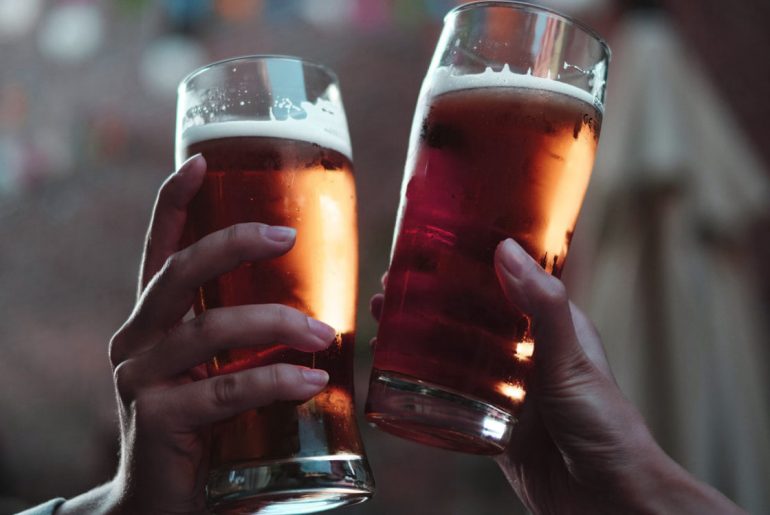Who has not signed up for “the beer” after a race? This social activity, after training, or after an event, is very common. But, as we have said on more than one occasion, there is no safe amount of alcohol. And what about 0.0 beers?
Is it better to opt for these drinks? Do you really not carry alcohol? What do they have, then, is better or worse for health? There are many questions that raise these products and even more so being able to become the protagonists of this widespread social situation.
What is really a non-alcoholic beer?
In the supermarket and in the bars we can find the famous 0.0 beers and non-alcoholic beers. Spain is the country in Europe that drinks the most alcohol-free beer. This product has been gaining popularity in recent years, prompting a large increase in production. Win in health? A matter of taste? What reason is behind this?
Before continuing, we must distinguish between the 0.0 categories and the “without” beer. While the second is regulated according to Royal Decree 678/2016, the 0.0 is a kind of category “invented” by the industry. True beers without alcohol, according to the law, must contain a maximum of 0.04% alcohol.
The 0.0, however, can have up to 0.9% (always below 1% alcohol). Clarified this, both products are, indeed, beers that have been modified to contain lower graduation (normal beers usually contain between 3 and 5% alcohol, although there are many more.).
How are beers made without alcohol?
There are two methods to make beers with low alcohol content. For example, special yeasts, low temperature, and other techniques can be used to obtain a drink with only 3 to 1% alcohol. These beers are considered, by legislation, as “low in alcohol”, and are therefore not “alcohol-free”.
The second method, however, is to extract alcohol from beer. This is usually done through a physical technique consisting of heating the beer in a vacuum situation. In the process aromas and flavors associated with the drink are also extracted, and these are added, again, later.
It is a relatively complex technological process that needs specialized machinery. As we said, even then you can’t get a 100% alcohol-free beer. The lowest content that can be achieved is 0.03%, which is really low. Does that make these beers healthier?
Which is better, a 0.0 beer, a beer without or a normal beer?
Let’s go back to our table, together with our training partners. We are going to ask for that beer … and if we order it without? Won’t it be better for health? The decision to take one or the other is mostly organoleptic. That is, we do it for its flavor since when the alcohol disappears, the final taste of the beer also changes.
But when we put the health in between, this changes a lot, right? Is a non-alcoholic beer better? Yes, it is. Of course, despite its low alcohol content, we must not forget what we have already said: there is no safe amount of this substance. Not even 0.03%. It is true that it is a tiny amount, almost negligible.
In fact, it would be almost impossible to get drunk with this amount of alcohol present. Although our physiology does not matter. The action of alcohol on our health cannot be avoided so easily. Of course, it is not a matter of alarm, because the poison is in the dose, as who says.
And what about the rest of “things”? What things”? Alcohol-free beer, as we have said, only undergoes a physical process to eliminate alcohol, and nothing else. There is a certain tendency towards chemophobia that makes certain people think that non-alcoholic beers “are not natural”. But they are as much as beer itself is, which is, after all, a further processed product.
Is beer good after running?
In no case can we say that beer is good for your health. And period Not even 0.0 or alcohol-free. While regular beer contains the unfortunate alcohol, which is bad, beers that are low in this substance are also associated with the promotion of alcoholism or the naturalization of alcoholic beverages.
Therefore, it also has its negative side, even if it was not affecting us directly. On the other hand, what is very clear is that as a fermented and alcoholic beverage (at least in its base) it has no beneficial nutritional properties when compared to any other substance.
That is, better than a beer will always be water. Even isotonic drinks are a better option. There is a certain myth, quite widespread, about the benefits of beer after exercise, especially for its relative and high content of salts and vitamin K. But no, it is not true. It is better to eat some fruit and drink water than to deceive us about beer. Socializing is important, and drinking alcohol, or non-alcoholic derivatives, is a voluntary decision. But it is not beneficial for anyone to deceive us about their supposed benefits.

